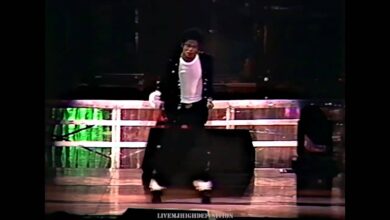Untold Secrets Behind Michael Jackson’s ‘Billie Jean’ Revealed – You Won’t Believe the Shocking Truth
Michael Jackson’s “Billie Jean” is a song that has captivated audiences for over three decades. The iconic hit was released in 1983 and went on to become one of Jackson’s biggest and most enduring hits. But despite its massive popularity, there are still many secrets and hidden meanings behind the lyrics that have yet to be uncovered.
At its core, “Billie Jean” is a song about obsession and deception. The titular character is a woman who claims that Jackson is the father of her child, a claim he vehemently denies. The lyrics paint a picture of a man who is being hounded by this woman, even as he insists that he is not the father.
But as it turns out, there may be more to the story than meets the eye. In a 2009 book called “Michael Jackson: The Magic and the Madness,” author J. Randy Taraborrelli claimed that “Billie Jean” was based on a real-life incident that happened to Jackson.
According to Taraborrelli, Jackson received a letter from a fan who claimed that he was the father of one of her twins. Jackson denied the claim, but the woman persisted and even threatened to harm herself if he didn’t acknowledge the child as his own. Jackson was eventually forced to hire a private investigator to look into the matter, which turned out to be false.
This revelation adds an entirely new layer of meaning to the song, and makes it all the more powerful. It’s a testament to Jackson’s ability to take a personal experience and turn it into a universally relatable message. Everyone has dealt with obsessive people in their lives, and “Billie Jean” speaks to that feeling in a way that few other songs can.
In conclusion, Michael Jackson’s “Billie Jean” is a song that continues to fascinate and intrigue listeners to this day. Its themes of obsession and deception are timeless, and its message is just as relevant now as it was when it was first released. With this new information about the song’s origins, we can appreciate it even more and understand the personal connection that Jackson had with his music.



